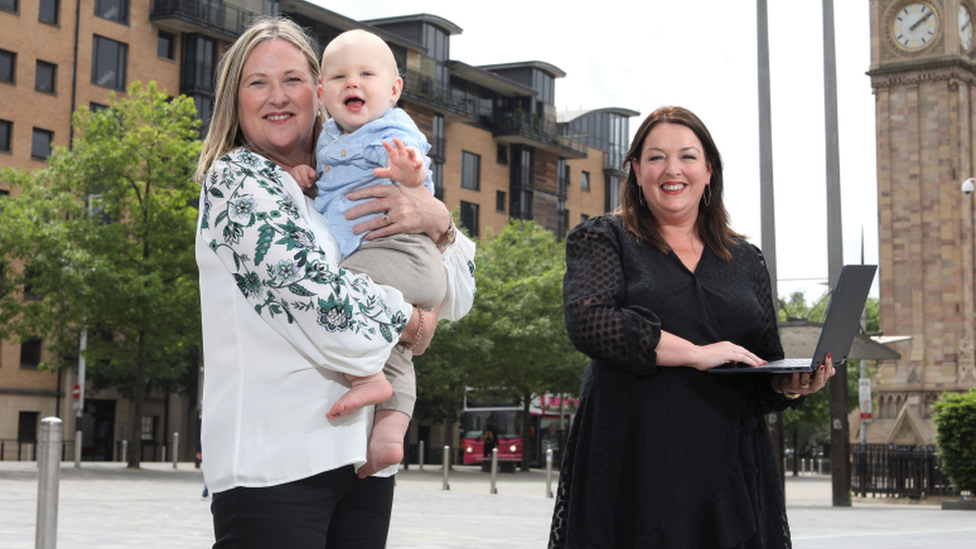Working mothers in NI more likely to be part-time compared to Republic
- Published

Mothers in Northern Ireland are more likely to work part-time than their counterparts in the Republic of Ireland, a study has found.
The research, external by the Economic and Social Research Institute compares early childhood care between the two jurisdictions.
The rate of employment among mothers of under fives is 69% in Northern Ireland.
This compares to 64% in the Republic, although the gap is "not statistically significant", the report said.
It suggests that while mothers are more likely to be employed in Northern Ireland, they work shorter hours.
In NI 44% of this group work part-time, compared with 33% in Ireland.
Much narrower differences in the rate of part-time work are found for other groups of women.
The research shows working mothers in Republic of Ireland are more dependant on formal childcare, whereas in Northern Ireland there's a greater reliance on family and friends.
Centre-based care is the main care type for 42% of children in Ireland, while the figure for Northern Ireland is half that at 21%.
In both jurisdictions, centre-based care is more common when mothers are employed and family income levels are higher.
The ESRI carried out the research with the Shared Island Unit in the Department of the Taoiseach.
'Scope to improve'
Children in both jurisdictions are entitled to free, term-time pre-school care, which have very high levels of take-up.
Hours of entitlement are slightly longer in the Republic at 15 hours. In Northern Ireland it's 12.5 hours.
Some children in NI receive longer hours of free pre-school, depending on the type of services available locally.
The ESRI noted that extensions in the hours of universal pre-school provision have been implemented in the rest of the UK but not yet in Northern Ireland.
"The relationship between maternal employment and childcare runs in both directions so it is likely that the level of participation in employment is influenced by the availability and cost of different care options," it added.
The study also found that a child's home environment has greater influence on their development than attending early education and care.
When examining childcare staff pay and retention, researchers say there is a wide disparity in Northern Ireland in qualifications, pay and conditions of those working in private or voluntary settings compared to those working in the statutory sector.
One of the report authors, Dr Helen Russell, said: "Accessible and affordable childcare also impact on parents' employment opportunities, particularly mothers.
"This study as part of the Shared Island research programme shows that childcare systems in Ireland and Northern Ireland can learn from each other in promoting quality and inclusivity.
"In both systems, there is further scope to improve the level of spending on young children in line with that in other wealthy countries and expand provision for children under three."
- Published24 November 2022

- Published17 June 2021
